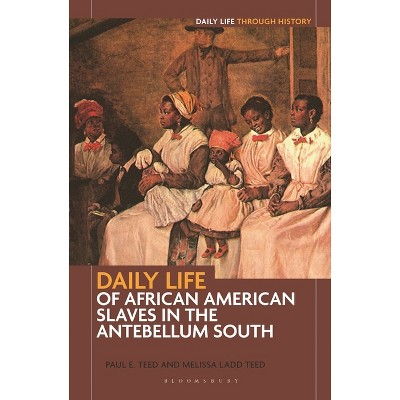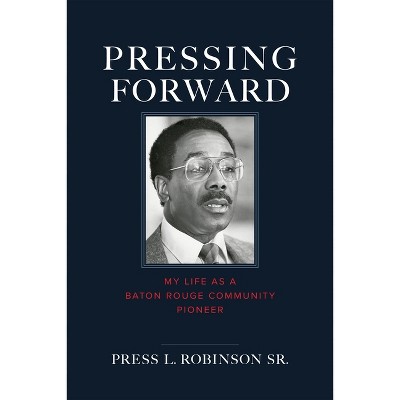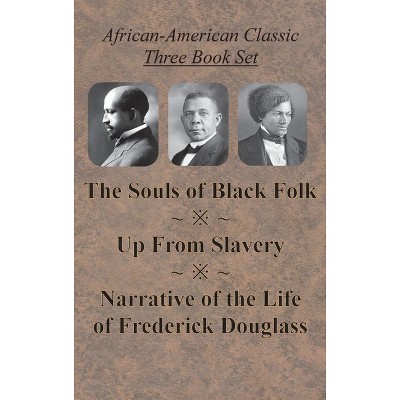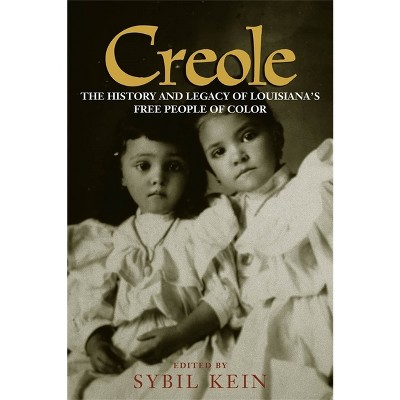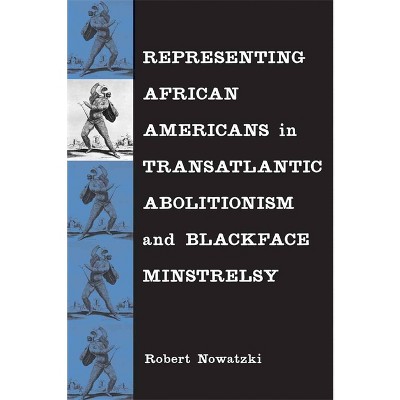Sponsored

Invisible Blackness - by Katy Morlas Shannon (Hardcover)
In Stock
Sponsored
About this item
Highlights
- Invisible Blackness explores the complex lives of Creoles of mixed race born in Louisiana to enslaved women and the white men who enslaved them.
- About the Author: Katy Morlas Shannon is the author of Antoine of Oak Alley: The Unlikely Origin of Southern Pecans and the Enslaved Gardener Who Cultivated Them, which won the 2022 Phillis Wheatley Book Award for best biography.
- 200 Pages
- Social Science,
Description
About the Book
"Invisible Blackness explores the complex lives of mixed-race Creoles who shared the same language, religion, blood, and culture as their white cousins but never the same status. This book will examine the ways these children, born of enslaved women and white enslavers, chose to reinvent themselves and forge their own identities within the increasingly strict racial order of antebellum and post-war Louisiana. A vast array of records collected over fifteen years of research, including sacramental, vital, and notarial records, bills of sale, successions, wills, and military pension files, sheds light on how this liminal group defined itself and ultimately how its members shaped their own identities. The book centers the life of Alice Thomasson Grice, her children, and friends of mixed racial heritage. Their individual lives form the center of the narrative, and stories of their family, friends, and community radiate from their experiences. Alice's story is unique, as her father considered her formerly enslaved mother to be his wife, and she and her siblings were raised as free people. Charles Grice, a white steamboat captain, married Alice and legitimized their children, and the family chose to identify as white. Invisible Blackness considers the reasons why Alice, her children, and her friends Marguerite Grossinger and Georgina Gaal chose to cross the color line during the era historian Joel Williamson deemed "the age of passing," roughly spanning the years between 1880 and 1925. Best estimates indicate that the Grices were among 110,000 people with African ancestry living as white all across the United States, with rate of between 2500 to 2750 people passing over per year. In Louisiana, with its high population of mixed-race individuals, it is probable that between 100 and 500 people of color "became white" every year from 1875 to the 1890s. For the Grices, who appeared white, passing afforded the only means of social, economic, and political advancement available to them. Complexion, education, finances, and family all influenced the decision to identify as white. Ultimately, children like Alice Thomasson Grice had a choice. They could redefine and create their own identities because of the diversity of their background. Their lives underscore that race is a social construct and yet also a very significant aspect of an individual's reality. Beyond these broad pressing historical questions lie issues of love and family and the universal quest for belonging that transcend time, place, and race"--Book Synopsis
Invisible Blackness explores the complex lives of Creoles of mixed race born in Louisiana to enslaved women and the white men who enslaved them. Individuals such as Alice Thomasson Grice forged their own identities--and often reinvented themselves--within the increasingly strict racial order of antebellum and postbellum Louisiana.
Alice Thomasson Grice occupied an unusual position among mixed-race Creoles of her era, as her white father recognized her formerly enslaved mother as his wife and raised Alice and her siblings as free people. After Alice married a white steamboat captain, Charles Grice, she and her children chose to identify as white. Invisible Blackness explores why Alice, her children, and friends in similar positions elected to cross the color line during the so-called "great age of passing" that spanned from 1880 to 1925. While it's impossible to quantify the number of people who crossed the color line at any given time, evidence suggests that the rate of passing corresponded closely with the severity of anti-Black oppression and discrimination. By the 1890s, when the Supreme Court upheld Jim Crow laws and lynchings were on the rise, Black people who could pass had a strong motivation to do so. For the Grices, passing afforded the only means of social, economic, and political advancement available to them. Drawing on a vast array of primary sources, ranging from sacramental records and bills of sale to wills and military pension files, Invisible Blackness sheds light on how this liminal group of individuals defined themselves and shaped their identities. The lives of the Grices and people like them underscore that race is both a social construct and a significant lived reality. Beyond these broad, pressing historical questions lie issues of love, family, and the universal quest for belonging that transcend time, place, and race.Review Quotes
"Invisible Blackness is an extraordinary book. Shannon's exquisitely researched and revelatory tale offers the reader a unique window into the complex lives of Louisiana's Creoles of mixed race. With a firm grasp of Louisiana's past and a keen eye for detail, the author chronicles the lives of Marguerite, Alice, Georgina, and Marie as they fend for themselves with grit and determination. Shannon's book makes an important contribution to our understanding of Louisiana's history of interracial relationships and racial passing. Written with sensitivity and clarity, Invisible Blackness brings us a fresh perspective on what it means to be Creole."--Mark Charles Roudané, author of The New Orleans Tribune: An Introduction to America's First Black Daily Newspaper
"Invisible Blackness is an illuminating and essential contribution to the study of racial identity in Louisiana's complex sociocultural history. As a historian who has dedicated over two decades to documenting Creole culture, Katy Morlas Shannon expertly navigates the intricate lives of mixed-race individuals born into the liminal space between whiteness and Blackness in Louisiana during the nineteenth century. . . . A compelling and insightful examination of America's enduring racial legacy."--Heather Veneziano, professor of practice in historic preservation, Tulane University
"In Invisible Blackness, Shannon has combined evocative and illustrative narration with the scholarship of a historian who has immersed herself in archival research. Invisible Blackness is comprised of interwoven personal and familial stories of Louisiana women whose lives traversed the proverbial 'color line' that has circumscribed so much of American history. This book of nested stories ably serves as both a primer on antebellum and postbellum race relations and a masterful collective biography of strong Louisiana women who, to borrow the words of Du Bois, embodied the peculiar sensation of 'two souls, two thoughts, two unreconciled strivings; [and] two warring ideals.'"--Jari Honora, certified genealogist and reference associate, The Historic New Orleans Collection
About the Author
Katy Morlas Shannon is the author of Antoine of Oak Alley: The Unlikely Origin of Southern Pecans and the Enslaved Gardener Who Cultivated Them, which won the 2022 Phillis Wheatley Book Award for best biography. She was instrumental in the early stages of research for Whitney Plantation, created a searchable online database of more than four hundred enslaved individuals at Evergreen Plantation, and co-curated an exhibit about the enslaved community at Laura Plantation. Katy lives in Mandeville, Louisiana, with her husband and three children.Shipping details
Return details
Trending Non-Fiction






